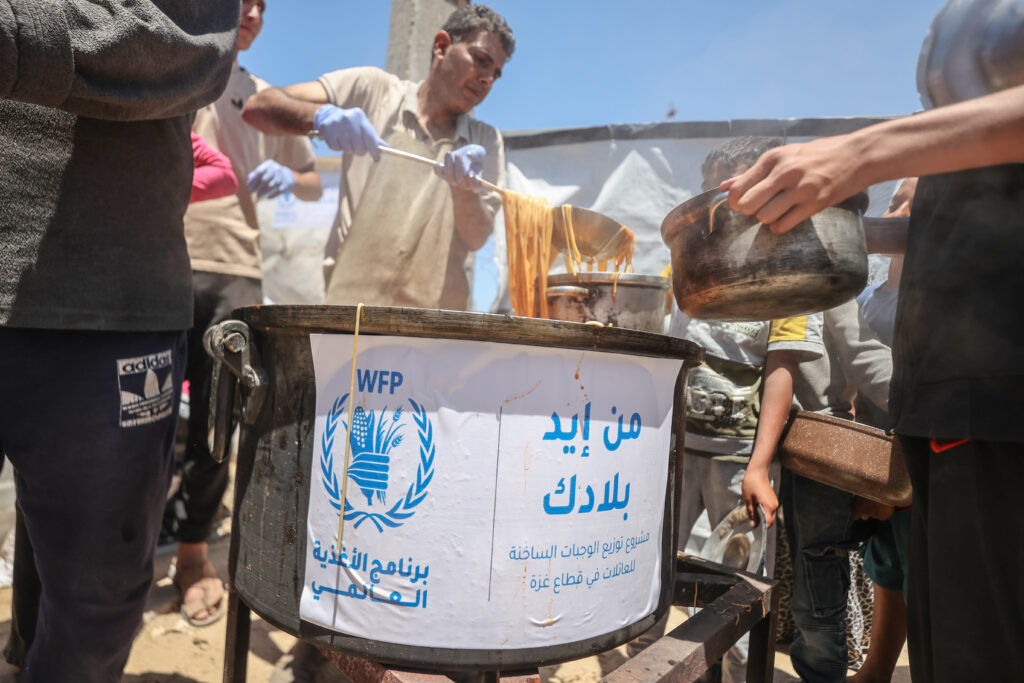World
World Food Program USA Statement on One Year of Emergency Response in Gaza – World Food Program USA

As we pass the one-year mark of the United Nations World Food Programme’s emergency response in Gaza and the West Bank, we at World Food Program USA look back at what the past 12 months have meant. We mourn the loss of life across the region and the tragic impact of conflict-driven hunger on the two million Palestinians living there. We honor the humanitarian workers who sacrificed their lives trying to distribute aid. Every person impacted will bear not only the scars of war, but also the lasting trauma of deprivation and scarcity. To save lives and preserve a future for all, we appeal to everyone to do what they can to end this violence and avoid a region-wide war.
The U.N. World Food Programme (WFP) has worked for decades to bring stability and food security to this region. In that time, and especially over the past year, our collaborations with local partners and contributions from stakeholders and supporters have been the keys to our achievements. We know that they are vital to creating and sustaining change.
With their support, WFP’s tenacious operations have helped stave off some of the worst possible outcomes of hunger, but significant challenges remain. As the conflict spills into neighboring Lebanon, WFP is scaling up to reach up to one million people for at least one month. At the same time, WFP continues to reach more than one million Palestinians with hot meals, bread, shelf-stable rations and nutritional supplements. Increased funding is desperately needed to meet the skyrocketing needs of the individuals and families who have lost everything to this war and who continue to face repeated forced displacements.
While we reflect on Gaza’s crisis, it evokes other conflict-driven hunger crises raging around the globe – in Sudan, the Democratic Republic of Congo, Ukraine and Haiti, among other nations. Conflict is the top driver of global hunger, pushing 158 million people into alarming levels of food insecurity. When violence erupts, it sends shock waves through a region. Infrastructure is destroyed, markets collapse and people are forced from their homes. All of this pushes people to the brink.
Where there is conflict there is hunger, and where there is hunger there is often conflict. It’s a cycle we have the power to break. As the recipient of the 2020 Nobel Peace Prize, the U.N. World Food Programme has always promoted food security as an integral part of the pathway to peace. We use today to reaffirm our commitment to serving those who are needlessly impacted by war and to demand the safe passage of humanitarian workers around the world. We thank our supporters for joining us in this commitment and in our call for peace.









